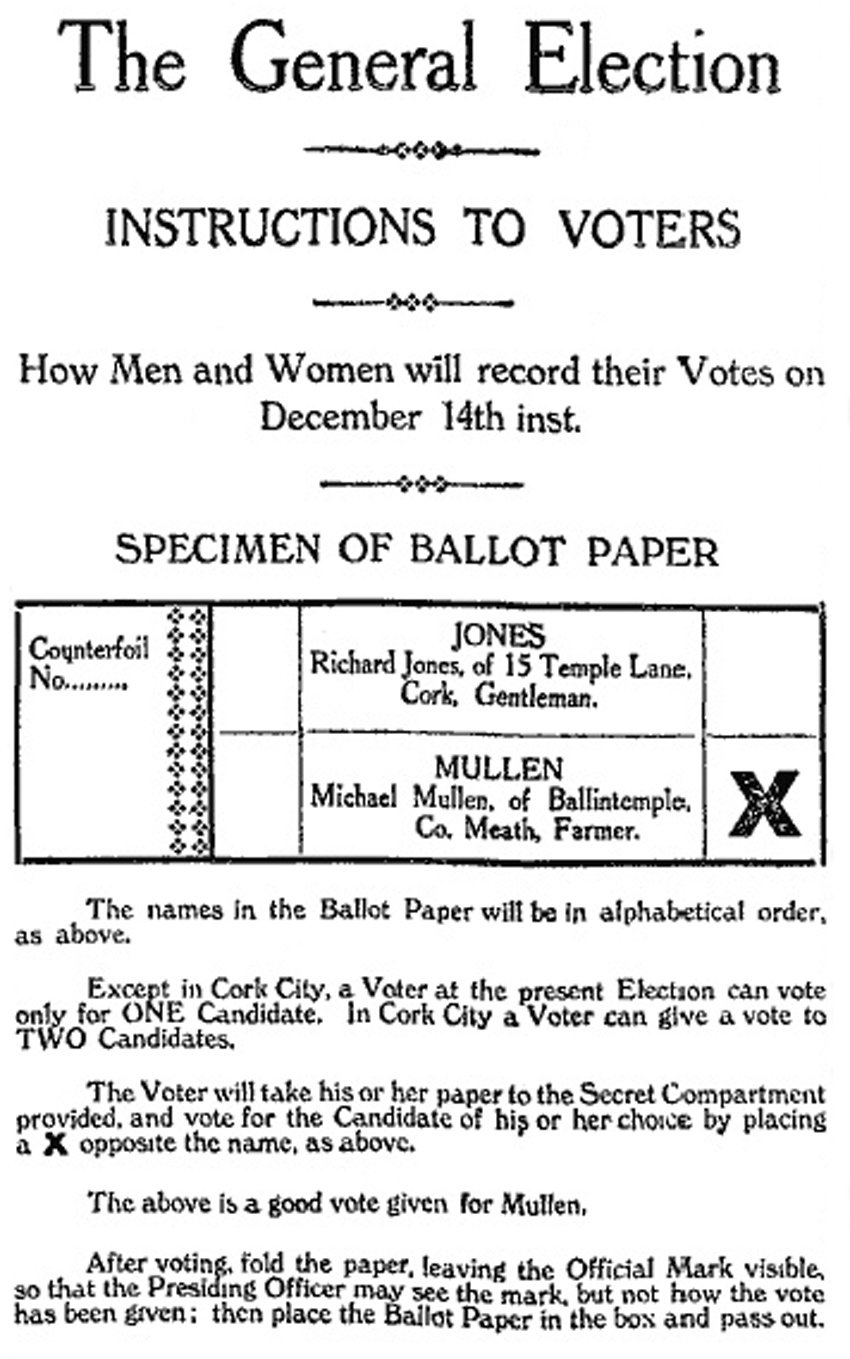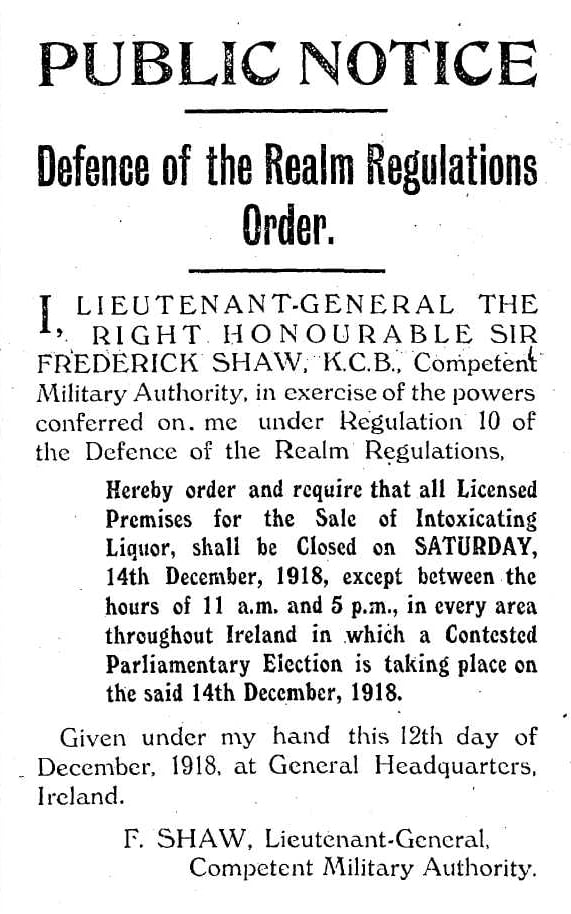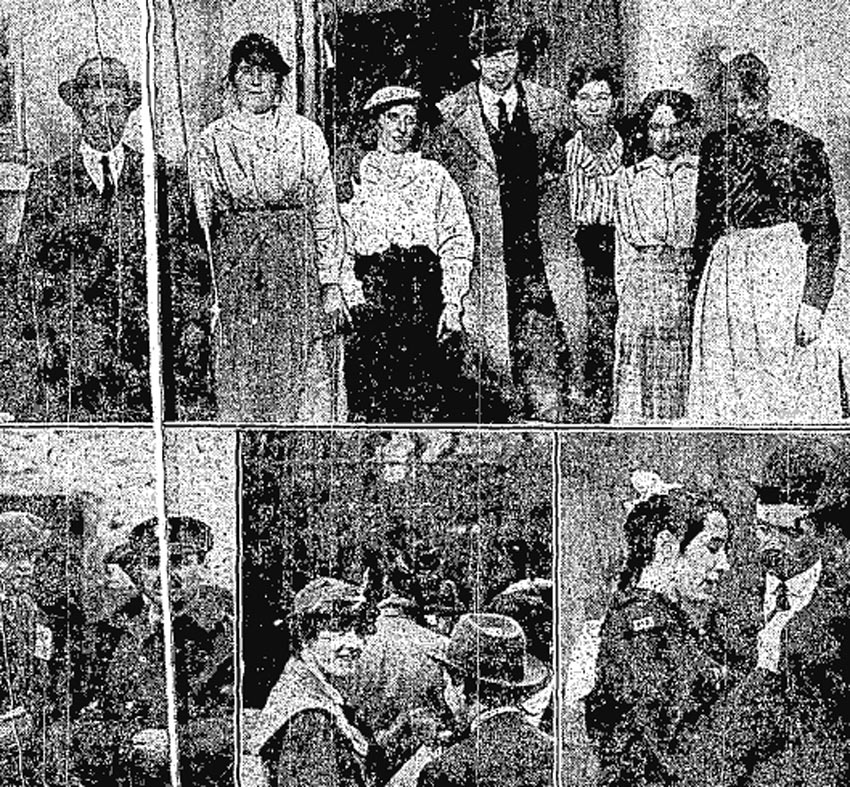Ireland decides – polls close on historic election day
Dublin, 17 December 1918 - The polls have closed on a historic general election. New constituencies, new candidates and parties and a greatly expanded electorate made this an election like never before.
And following a campaign which saw unseemly clashes in a number of hotly contested constituencies, polling day itself passed, for the most part, in an atmosphere of constraint and reserve.
The polling stations were open from 8am until 9pm on 14 December and throughout the day there was a steady flow of voters through the doors, which had the effect of avoiding a late surge before the polls closed. Turnout was undoubtedly helped by the fine weather and by the fact that many employers gave their workers a half-day.
To ensure good order, the decision was made to restrict pub licensing hours to between the hours of 11am and 5pm in all places where the election was being contested.

|

|
Left: Instructions to voters ahead of the general election. Right: An order restricting the sale of alcohol to prevent disordrely conduct during the voting hours. (Images: Freeman's Journal and Belfast Newsletter)
In what was their first opportunity to exercise their franchise, women turned out early and enthusiastically at the polls, in a number of places being the very first to cast their votes.
By 3pm, the Irish Times reported, the number of women who had voted was proportionately higher than that of men, though there hundreds of cases of wives and husbands walking together to the polling stations. Their allegiances, however, were not always for the same party. One nationalist agent bitterly complained of having gone the day without food while his wife and daughters busied themselves carrying food to Sinn Féin agents.
After the polls closed, the ballot boxes in the various polling stations of the seven Dublin City constituencies were removed and taken to Green Street Courthouse where they taken in charge by officials, police officers and representatives of the candidates.
A large crowd assembled at the courthouse and, although a number of Sinn Féin representatives indulged in singing and flag-waving, there were no untoward incidents.
The day did not however pass without complaint. In North Monaghan, there were reports that organised gangs of Sinn Féin supporters, so-called ‘Peace Patrols’ armed with with hurleys, took up positions at all polling stations and a number of assaults took place following the closure of the polls. ‘Peace Patrols’, equipped with heavy sticks, were also reported in Loughrea, Co. Galway. They arrived into the town from Ballina and outlying districts and armed police and military responded by taking up positions to ensure these patrols were kept under police control.
The count will not take place until after Christmas, with results expected on 28 December.
[Editor's note: This is an article from Century Ireland, a fortnightly online newspaper, written from the perspective of a journalist 100 years ago, based on news reports of the time.]





















